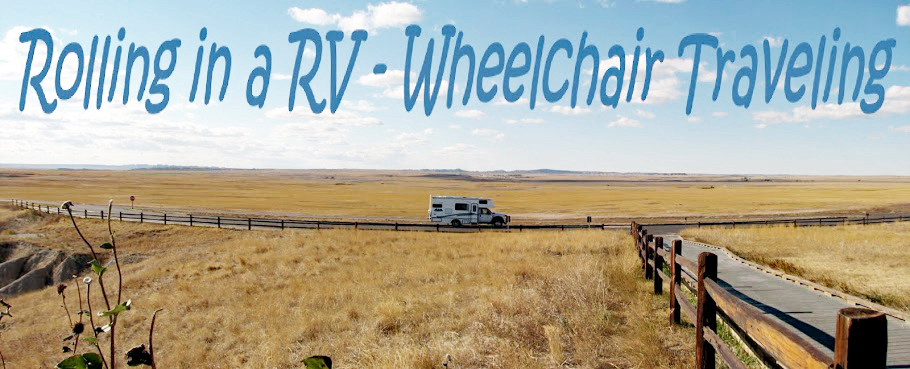Custer was founded in 1878 when a gold vein was discovered high in the hills overlooking the town. A 3,200 foot aerial tram carried the ore downhill to a steam driven 20-stamp mill that perched just above the houses. It must have been a noisy place to live! By the early 1900s all of the area gold mines were played out and by 1911 only two families lived in Custer.

A gravel path connects all of the buildings. Interpretive signs explain the mining processes and the purposes of the buildings. The school house serves as a small museum and the saloon is a gift shop. Some of the buildings are furnished with discarded pieces, mainly heavy stoves that were left behind.
The gravel path is in good condition but wheelchair users may need assistance where the gravel is loose. Although some buildings have ramps, they also have high thresholds so they’re not completely barrier free. The gift shop has a ramp. The museum has a ramp at the rear entrance. It was locked when we visited so someone may need to go in the front entrance to get an employee to open the door. The ramp inside bridges a step down to the main portion of the museum. The pathway through the exhibits is tight so some pieces may need to be moved.
The town is about 9 miles from Hwy75. The first 3 miles are paved, the next six are gravel with some washboard. The parking area is small but RVs will fit if parked parallel to the road. Custer 44.38725, -114.69708










So many of these "ghost towns" look alike ... and why not, I suppose, they're of roughly the same age and caliber. Still, we enjoy peeking into windows, etc, and going into buildings is even better!
ReplyDeleteUs too!
Delete